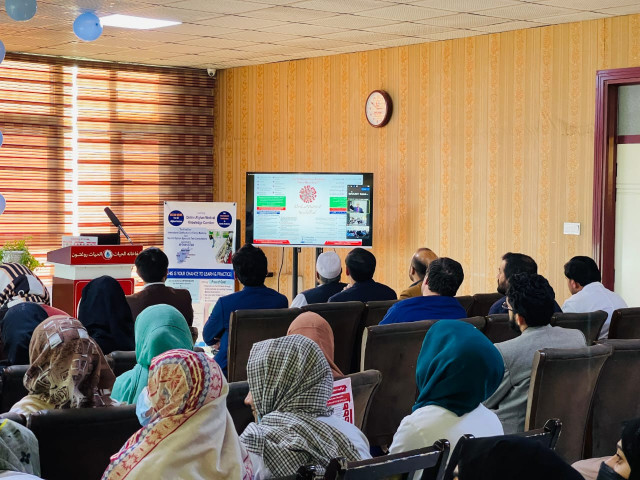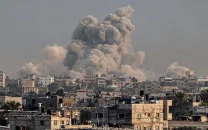Pakistani firm training Afghan doctors online
Project aimed at reducing influx of citizens from neighbouring country

Pakistan’s Karachi-based health-tech platform Educast is training 1,000 doctors in six provinces of Afghanistan with the support of the Islamic Development Bank to alleviate the shortage of physicians in the neighbouring country and strengthen its healthcare system.
The Afghan doctors undergoing the training are those who have been out of medical education for two to three years.
The aim of the training is to upgrade them to address the shortage of medical specialists in Afghanistan.
The project to connect Afghan doctors with Pakistani medical experts through telemedicine will also reduce pressure on Pakistan's healthcare system.
Besides, the project will reduce the need for Afghan residents to travel to Pakistan, helping Islamabad in reducing its security concerns.
In the initial phase, Afghan doctors will receive training in the latest medical trends and treatment methods.
Subsequently, Afghan doctors will be linked to Pakistani medical institutions and specialists via telemedicine for expert or second opinions.
The collaborative effort is crucial in the context of the recent changes in Afghanistan's regime that caused doctors and medical specialists to leave the neighbouring country.
Read More: Verifying credentials: Afghan doctors come under govt scrutiny
Abdullah Butt, CEO of Educast, told The Express Tribune that the Afghan authorities had requested the Islamic Development Fund for assistance in the capacity-building of their doctors.
He added that the Islamic Development Fund selected Educast for Afghanistan considering the expertise of the Pakistani health-tech company and the quality of services rendered in its own and other Islamic countries.
Butt pointed out that the Islamic Development Fund had provided a grant to Educast for the task of training Afghan doctors.
Afghan doctors are being trained by Pakistan and UK specialist doctors, who hold weekly live sessions and deliver lectures.
This training is being provided free of charge and consists of seven modules and 20 lectures.
It is a self-learning programme specially developed by German organisation Lecturio in Pashto and Dari languages.
An agreement has also been concluded with the American training organisation, Coursera.
Stanford University will also be included in this training course next year.
The Educast CEO said 80% of the 1,000 Afghan doctors participating in the course were women, who are determined to provide better healthcare services while living in their own country.
“This project has the full support and assistance of the Afghan Taliban leadership,” he added.
In order to make the course successful, the Islamic Development Fund and the relevant ministries of Afghanistan have fully supported the initiative.
The success of the pilot project in Kabul has led to the expansion of training to Mazar-e-Sharif, Khost, Jalalabad, Nangarhar, and Kandahar.
Efforts are underway to extend this programme to 14 more provinces, with ongoing negotiations with the Islamic Development Fund.
Read More: Doctor? Engineer? As dreams fade, Afghan girls turn to madrasas
Currently, there is a crackdown on the Afghans illegally living in or travelling to Pakistan.
Because of the crackdown, the Afghans travelling to Pakistan for medical treatment are facing difficulties.
According to a research conducted in connection with the project of training doctors in Afghanistan, around 1,000 nationals of the neighbouring country travel to the major cities of Pakistan for treatment every day.
The massive influx of Afghans to Pakistan for treatment is putting additional pressure on the latter’s healthcare system and also becoming a security concern for the country.
The Afghan government itself is facing difficulties because of the payments made abroad for medical treatment.
It is also a challenge for the governments of both sides to prevent the movement of elements crossing the border under the guise of Afghans arriving for medical treatment in Pakistan, creating security problems.
According to international law, it is a diplomatic and moral obligation to grant visas on a priority basis to travellers for medical needs.


















COMMENTS
Comments are moderated and generally will be posted if they are on-topic and not abusive.
For more information, please see our Comments FAQ